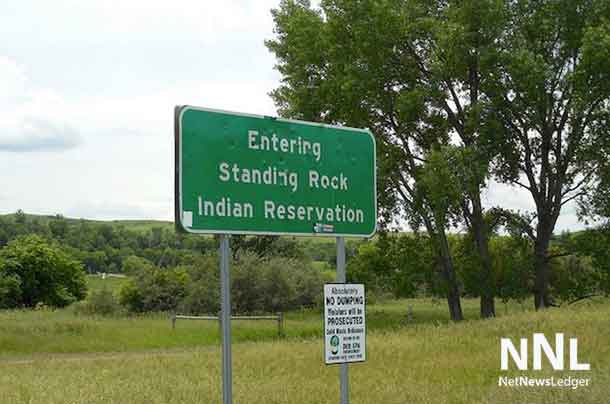

The Standing Rock Sioux tribe said the pipeline would desecrate a sacred burial ground
(Reuters) – The controversial Dakota Access Pipeline will begin interstate crude oil delivery on May 14, according to a filing with the U.S. Federal Energy Regulatory Commission.
Energy Transfer Partners LP on Thursday filed what is known as a tariff, which lays out details about the line and the oil to be delivered.
The 1,172-mile (1,885-km) Dakota Access line runs from western North Dakota to Patoka, Illinois. The $3.8 billion project became a focus of international attention, drawing protesters from around the world, after a Native American tribe sued to block completion of the final link of the pipeline through a remote part of North Dakota.
The Standing Rock Sioux tribe said the pipeline would desecrate a sacred burial ground and that any oil leak would poison the tribe’s water supply.
Thousands of protesters demonstrated in North Dakota and Washington, D.C., many staying to support the tribe in a makeshift camp near the pipeline’s construction site last fall. Many opponents also said reliance on the pipeline and the petroleum it was intended to carry would exacerbate climate change.
The outgoing administration of Democratic President Barack Obama said it would reconsider the permits issued for the pipeline’s route near tribal lands, delaying the project by several months.
But that move was quickly reversed after the inauguration of Republican President Donald Trump in January.
Among Trump’s first acts in office was to sign an executive order that reversed a decision by the Obama administration to delay approval of the pipeline.
The tribe also lost several lawsuits aimed at stopping the pipeline.
(Reporting by David Gaffen; Additional reporting by Sharon Bernstein; Editing by Sandra Maler and Leslie Adler. Credit: Thomson Reuters Foundation, the charitable arm of Thomson Reuters, that covers humanitarian news, women’s rights, trafficking, property rights, climate change and resilience. Visit http://news.trust.org)




